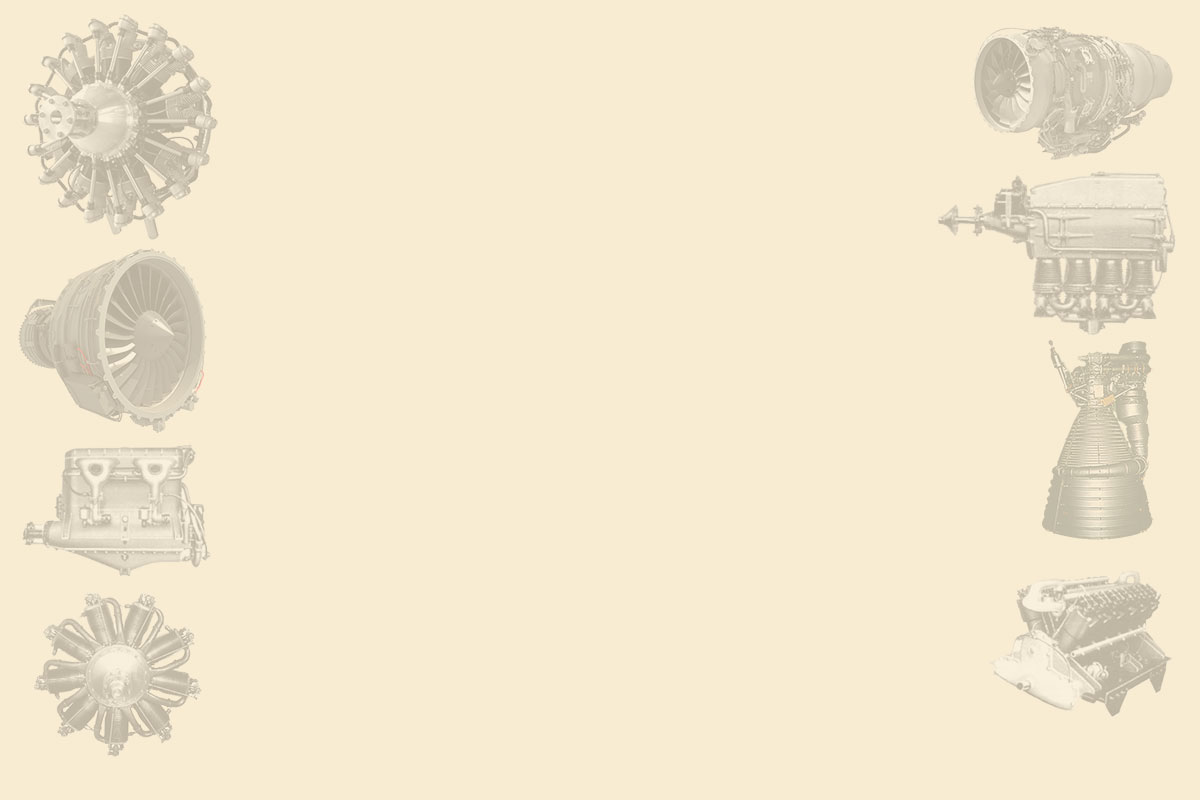Updated: 02-Apr-2020
LIPPISCH
(Germany)
(see Kronach).
At the end of WWII, the Germans had little fuel left.
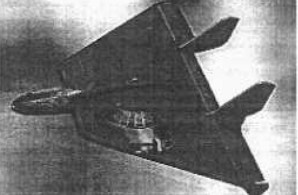
“Lippisch with Kronach”
-One of the most magnificent engines that were designed then was the one that used the Lippisch LiP 13b shown below. Ir was based on a design by B. Boyd.
-This unusual form of propulsion used a rotating basket filled with carbon pellets. The engine was started with gas.
-The nozzle was rectangular between the two deflections. As the charcoal burned, the circular basket rotated.
-It was actually a ramjet. It remained in project only.
From Appendix 9: A carbon dust engine model is the one installed on the hang glider aircraft known as the Lippish P13A.
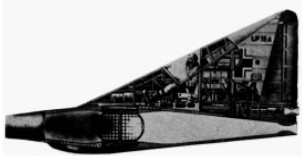
“P13A ramjet”
-The plane was created around the engine: a duct with a front air intake, a combustion chamber and an exit nozzle.
-The vertical stabilizer with rudder had the cockpit and controls.
-The triangular wings were also attached to the engine.
-It is another model, somewhat different from the “rotating basket” of the P13b model, which is mentioned in the main text.
-After the war, Lippisch was in Convair, USA, and designed the well-known hang glider Convair 102, etc., following his ideas.
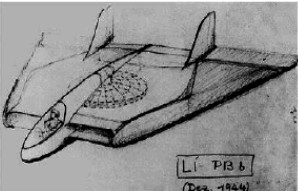
"Sketch of the plane and its basket"
From Appendix 12: At the end of WWII, the engineer was sharpening, either due to the shortage of gasoline or materials.
-The Lippisch LiP-13B (see main text) was made with an ingenious engine, working as a ramjet. Actually the engine was conceived by Kronach (sometimes it was called Kronach-Lorin, for some similarity).
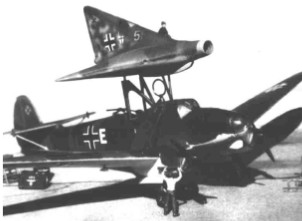
"Diorama with a Lippisch P13B"
-In this diorama it is installed on a mother aircraft to start ignition and propulsion.
Model: Estato de carbon (WWII)
Arquitecture:
Chambers:
Fuels:
Feed System:
Ignition:
Thrust:
Weight:
Model: Lippisch P13A
Arquitecture:
Chambers:
Fuels:
Feed System:
Ignition:
Thrust:
Weight:
